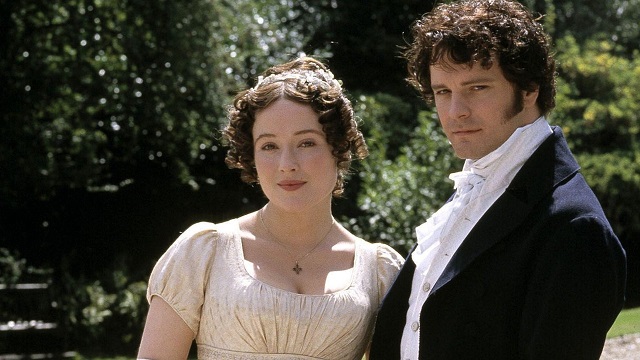
What do we love so much about Elizabeth Bennet? She's strong, and she's feisty. Just because she's expected to act a certain way doesn't mean she'll bend her convictions and change her behavior. She's real, right?
How do you define a strong female character? Have you heard of the Bechdel test? Alison Bechdel is an American cartoonist who writes strong women. She created the Bechdel test to determine if a work of fiction has strong female characters. It simply asks whether there are at least two women who talk to each other about something other than a man. And the two women must be named.
Virginia Woolf observed this phenomenon perfectly in her 1929 essay A Room of One's Own:
- All these relationships between women, I thought, rapidly recalling the splendid gallery of fictitious women, are too simple. [...] And I tried to remember any case in the course of my reading where two women are represented as friends. [...] They are now and then mothers and daughters. But almost without exception they are shown in their relation to men. It was strange to think that all the great women of fiction were, until Jane Austen's day, not only seen by the other sex, but seen only in relation to the other sex. And how small a part of a woman's life is that […]
What is a strong female character?
A strong female character—or any character for that matter—is one who is a catalyst. She's not a passive person waiting for things to happen; rather, she causes things to happen.
Let's consider Black Widow in the Avenger movies. She's pretty strong, wouldn't you say? Even in the Age of Ultron movie where she shows a softer, feminine side, she's still a catalyst. She's making things happen and moving the plot forward.
Here's something else to consider when creating your strong female character. Strong female characters don't mean:
- Masculine
- Emotionless
- Flawless
So let's reframe our definition of a strong female character:
- She's someone with realistic flaws and strengths who acts as a catalyst to move the plot forward.
6 tips to creating a strong female character
1. Give her internal strength
More than physical strength, your female character must be strong in mind and character. She should be intelligent, quick witted, talented, with a strong sense of empathy or loyalty.
2. Make sure she has flaws
No one is perfect, and your female character shouldn't be either. Make sure she has obstacles to overcome, both internal and external. A great way to create a 3-dimensional character is to give her a fear; it makes her relatable when she has to face her fears.
3. Flesh out her a backstory
Who is this woman? Why is she here? What happened to create her strengths and flaws? From where does she draw her strength and power? Identify how she defines herself.
4. She needs goals
And, no, her goals must not revolve around a man. She has a life outside of any man. Give her goals and make her work towards them.
5. She needs her own story arc
Your female character is not there to support a man's story arc. She needs her own arc, so create a strong personal life for her. And please, don't relegate her to the romantic or sexual sidekick.
6. Remember she's human
George R. R. Martin said, when writing women characters, he "always considered women to be people." And if you're into Game of Thrones, you know he writes strong, complex women characters.
Conclusion
One of the biggest mistakes you can make is creating a woman character whose sole purpose is to support a man's story arc. Writing a strong female character means you write the woman completely. She'll be strong because she's well-written.
For those of you who struggle to write a strong female character, write the character as a man and then change the pronouns later.
Here's an opinion we'd like some feedback on:
Strong female characters are under-represented in modern books and movies.
What do you think? Let us know in the comments below.



